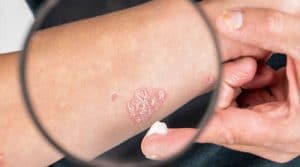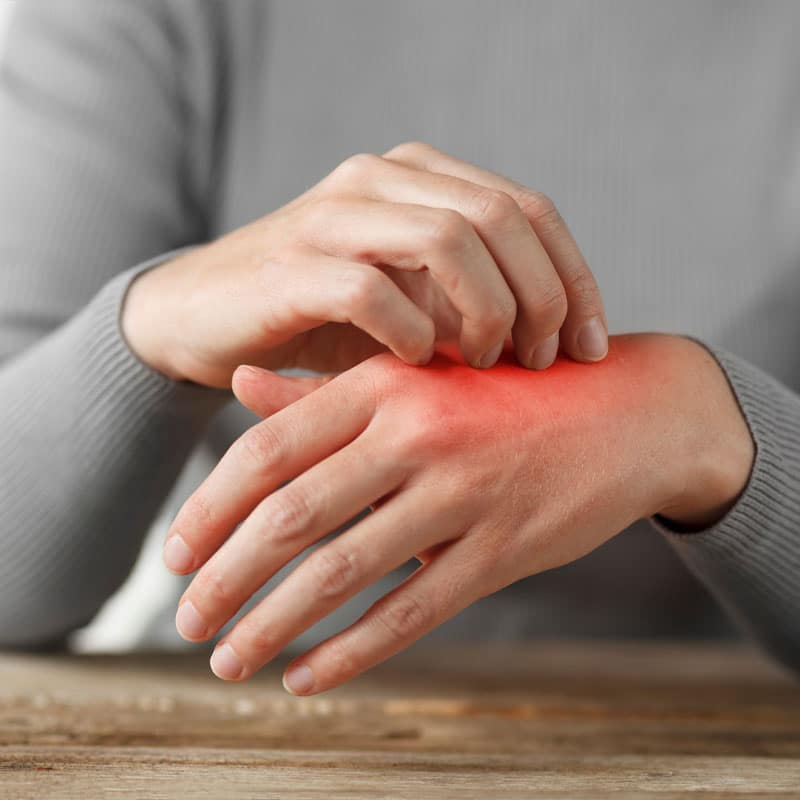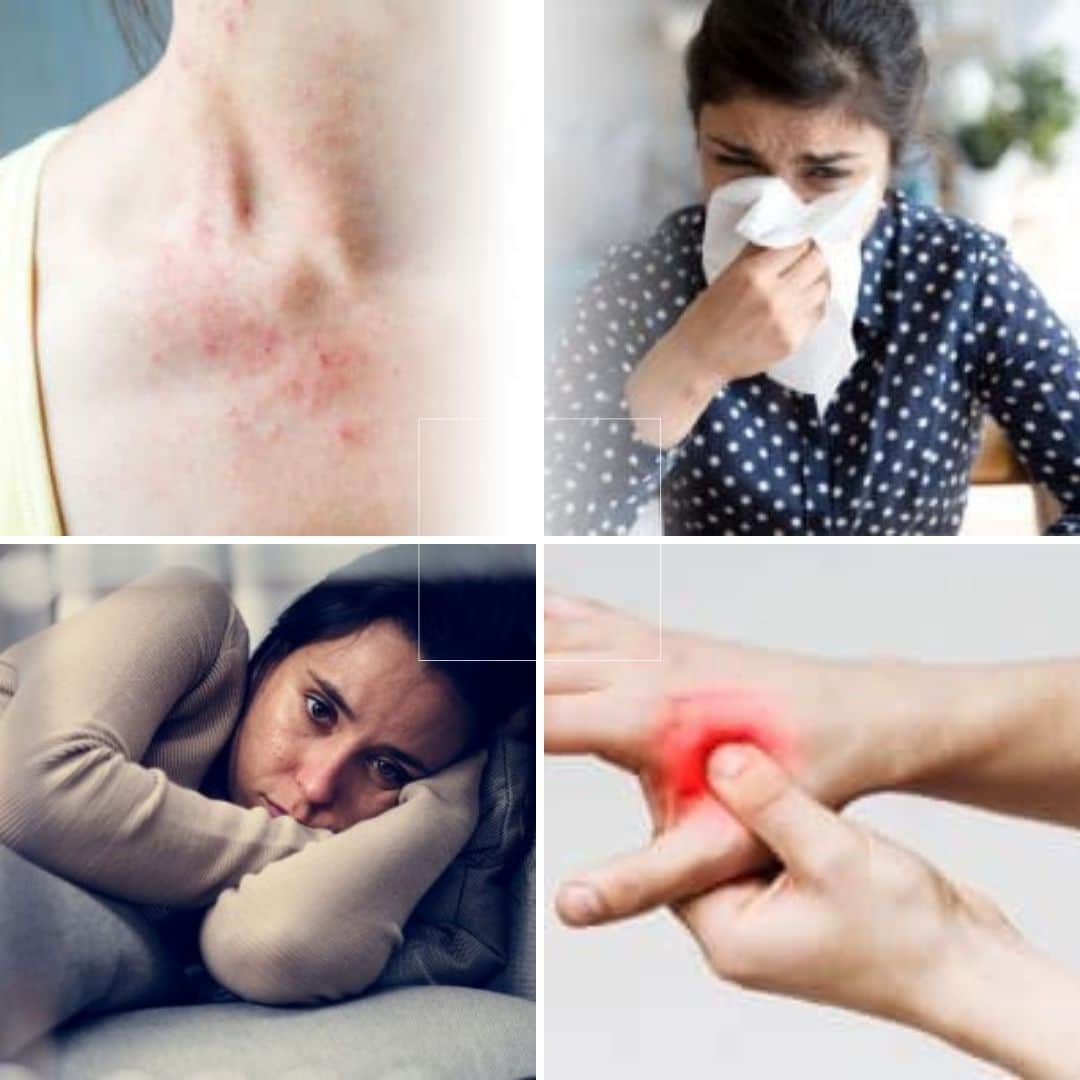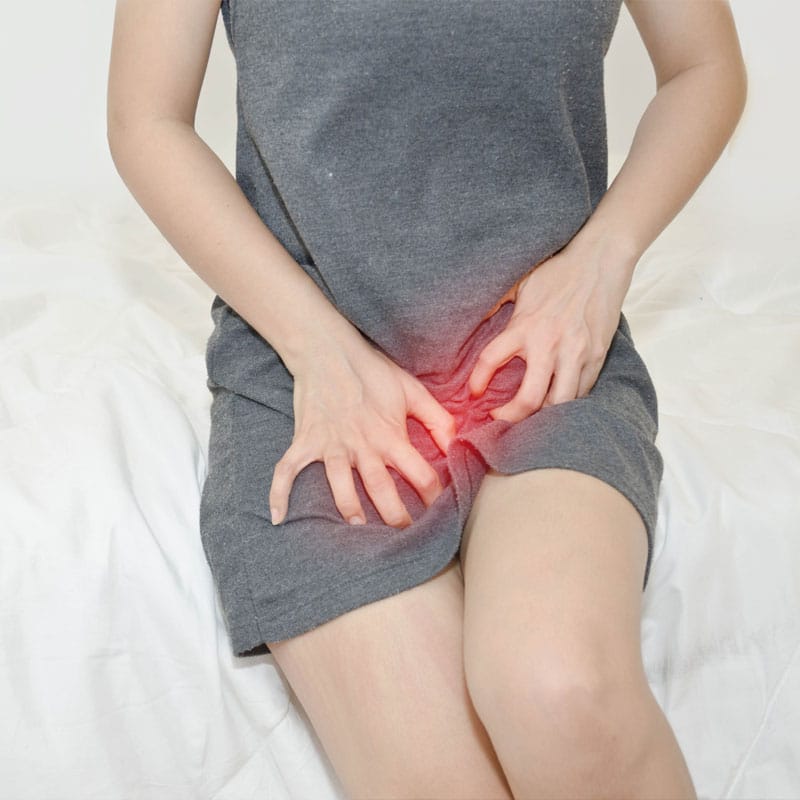Psoriasis is caused by immune system dysfunction leading to systemic inflammation. Normally, skin cells grow and shed over a period of a month. That said, an overactive immune system increases cellular growth. In the case of psoriasis, skin cells grow and shed as quickly as within three to four days. Skin cells then pile up and accumulate leading to a certain kind of skin lesion.
If you have suffered with psoriasis symptoms for a long period of time, you will probably know immediately the signs of a flare up. However, if you have been recently diagnosed, you may be unaware of the warning signs and early symptoms of this skin issue.

Psoriasis Symptoms
There are various symptoms of psoriasis. Believe it or not, your symptoms can change too. You may have one symptom and get it cleared up, only to have another symptom of psoriasis emerge. Many newly diagnosed individuals are surprised to learn that psoriasis is much more than having dry skin. Here are five of the most common symptoms of psoriasis.
Nail Pitting
Psoriasis can affect your fingernails and toenails. Approximately half of the individuals who suffer from this autoimmune disorder have nail issues. Tiny pits and dents can form in the nail. The nail can become discolored and grow abnormally. Fingernails and toenails can become loose and eventually separate from the nail bed or the nail may crumble. You can also develop a chalk like substance under the nails. Powerful corticosteroids may be required to help heal your fingernails and toenails.

Skin Pain
Psoriasis can cause systemic inflammation throughout your body, including your skin. When this autoimmune disorder begins affecting your skin, you may notice symptoms such as –
- Itching and burning
- Skin becomes painful as the condition worsens
Many sufferers report that the simple sensation of clothing rubbing against the skin can cause extreme pain. Soaking in a bathtub filled with Epsom salts or oatmeal can offer soothing relief to aching skin.
Joint Pain
In the context of psoriasis, when the immune system begins attacking the joints in your body, this is termed psoriatic arthritis. This condition causes joint swelling, stiffness, and pain. Psoriatic arthritis can affect any joint in the body, including your fingers, heels, and spine. The pain and stiffness can be mild or severe. The disease will typically have periods of remission along with periods of flares.
Learning what can trigger a flare will help you decrease the frequency of your flares. Gentle stretches and daily exercise loosen joints and minimizes stiffness and pain.
Raw, Red Skin Patches
Inverse psoriasis affects the creases and folds of your skin like the-

- Groin area
- Armpits
- Under the breasts
- Between the buttocks
Friction and sweating can worsen this condition. As the area becomes hot or rubbed by friction, large, smooth red patches of skin can form. These inflamed patches can become raw. Those who are overweight are at an increased risk of developing this autoimmune disorder. Keeping the area dry can minimize the risk of a flare. When a flare happens, applying hydrocortisone to the affected areas can reduce inflammation.
Pustules
Pus filled blisters can appear on the skin. The pus contains white blood cells and can develop on a large area of skin. If the pustules appear on the soles of your feet or the palms of your hands, they can develop in circular, scaly, brown spots that will eventually peel off. Finally, the pustules can appear on your toes and fingers. The pustules may burst and leave bright red areas that can cause scaling or oozing. Over time, nail deformities can occur.
Psoriasis Treatment Options
If you have been diagnosed with psoriasis, it is important to know your triggers. These triggers can vary for each individual. It may take time to determine the cause of a flare; however, once uncovered, you can avoid triggers and reduce the likelihood of a flare up. Writing in a journal or using an app on your smartphone can help you keep track of your feelings, pain levels, activity, medications, weather, and stress levels in relationship to your symptoms. Some of the common triggers include-
- Excess stress
- Cold weather
- Alcohol
- Processed foods
- Excess sunlight
- Injuries and infections
It is important to evaluate the health of the digestive tract. Eighty percent of the immune system lives in the digestive tract so your psoriasis may be rooted in some imbalance in the digestive tract.
Psoriasis causes a multitude of symptoms and learning to navigate your disease can be difficult. Our team of clinicians are experienced in treating psoriasis and other autoimmune diseases and skin disorders. We work with you to reduce the effects of an overactive immune system on the body.




















